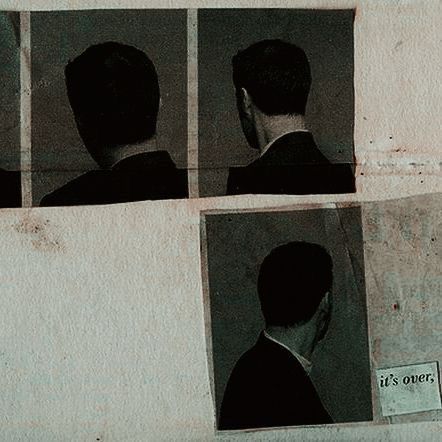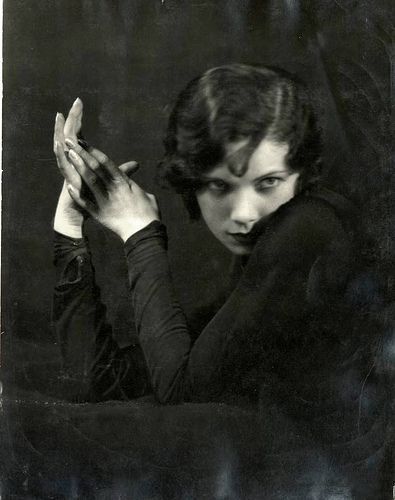Stibnium - Splendor Noctis

More Posts from Stibnium and Others
reblog and put in the tags the very first line of one of your favorite albums
talleyrand: i HATE you
fouche: i share the same sentiment
napoleon, in the distance, thinking to himself: ** those two scoundrels sure do hate each other. i’m glad they are too petty to put down their differences to work against m-
*fouche and talleyrand notice napoleon and put down their differences to work against napoleon*
napoleon: are you FUCKING kidding me


Yellow Irises by Claude Monet + Daffodils by William Wordsworth

You with your precious eyes —
The gods differ from mortals here not because they are above the law but because they possess the insight to avoid breaking it. This marks the difference between gods and mortals perhaps more deeply than death itself: the gods never find themselves in the position of Oedipus, suddenly and unimaginably guilty. They are able to avoid actions whose consequences they cannot control; mortals risk such consequences in their every action. And perhaps it is even a kindness that transgression and death go hand in hand, that those who cannot die need not sin: for one who has broken the law which even the gods fear, the best thing is to die quickly.
-incest, cannibalism, and the rise of the house of atreus, michael kinnucan
So the ubiquitous counsel of the chorus concerning the hero—look what fortune has done here, she used to be on top of the world, don’t count on happiness, don’t believe anyone happy until he is dead—says more than it seems to. In the last analysis, what can one say of mere mortals? A human is just too partial, too speckled and subject and already-half-gone, for anything to be really true or false of him. Is he happy, is she sad? Maybe, a bit, for a time, but really—who can say, who can even care? That’s how it is for humans, unless and until they are tragic. The tragic hero is complete. You can call him unhappy (miserable, utterly broken) even before he is dead. For an instant he is something like divine. And then he dies, because there’s nothing left to do. The center of every tragedy is the image of a human being who has already died but keeps talking, someone whose face is a mask. Antigone says this explicitly—she is already dead; Oedipus acts it out in gouging out his eyes.
-the gods show up, michael kinnucan
society6 | twitter | ko-fi | deviantart

Elegy for 9 Thermidor
Maximilien Robespierre (1758-1794) // Antoine de Saint-Just (1767-1794) // Georges Couthon (1755-1794) // Augustin Robespierre (1763-1794) // Philippe Le Bas (1764-1794)
i. Hymne du 9 Thermidor - Etienne-Nicolas Méhul
ii. O Salutaris hostia - François-Joseph Gossec
















the man-god: demons by fyodor dostoyevksy
-
 nova-voltaris liked this · 2 weeks ago
nova-voltaris liked this · 2 weeks ago -
 le-vieux-cordelier reblogged this · 2 weeks ago
le-vieux-cordelier reblogged this · 2 weeks ago -
 mothman-s-wife liked this · 2 weeks ago
mothman-s-wife liked this · 2 weeks ago -
 calcetinnn liked this · 2 weeks ago
calcetinnn liked this · 2 weeks ago -
 bonbonrobespierre liked this · 3 weeks ago
bonbonrobespierre liked this · 3 weeks ago -
 bryla-kobaltu liked this · 3 weeks ago
bryla-kobaltu liked this · 3 weeks ago -
 tinnitye liked this · 3 weeks ago
tinnitye liked this · 3 weeks ago -
 pratiquecompte liked this · 3 weeks ago
pratiquecompte liked this · 3 weeks ago -
 s-ashaesthetic reblogged this · 3 weeks ago
s-ashaesthetic reblogged this · 3 weeks ago -
 trainwrecker liked this · 3 weeks ago
trainwrecker liked this · 3 weeks ago -
 at-times-i-get-a-little-cruel reblogged this · 3 weeks ago
at-times-i-get-a-little-cruel reblogged this · 3 weeks ago -
 sparvverius liked this · 3 weeks ago
sparvverius liked this · 3 weeks ago -
 icybloodtigrss reblogged this · 3 weeks ago
icybloodtigrss reblogged this · 3 weeks ago -
 icybloodtigrss liked this · 3 weeks ago
icybloodtigrss liked this · 3 weeks ago -
 cheeri1yfrancis liked this · 3 weeks ago
cheeri1yfrancis liked this · 3 weeks ago -
 archangedelamort liked this · 3 weeks ago
archangedelamort liked this · 3 weeks ago -
 le-vieux-cordelier reblogged this · 3 weeks ago
le-vieux-cordelier reblogged this · 3 weeks ago -
 le-vieux-cordelier liked this · 3 weeks ago
le-vieux-cordelier liked this · 3 weeks ago -
 ruffsketch reblogged this · 3 weeks ago
ruffsketch reblogged this · 3 weeks ago -
 ruffsketch liked this · 3 weeks ago
ruffsketch liked this · 3 weeks ago -
 probablynotalexz reblogged this · 3 weeks ago
probablynotalexz reblogged this · 3 weeks ago -
 probablynotalexz liked this · 3 weeks ago
probablynotalexz liked this · 3 weeks ago -
 la-confrontation reblogged this · 3 weeks ago
la-confrontation reblogged this · 3 weeks ago -
 cultiest liked this · 3 weeks ago
cultiest liked this · 3 weeks ago -
 chimera-vanya reblogged this · 3 weeks ago
chimera-vanya reblogged this · 3 weeks ago -
 chimera-vanya liked this · 3 weeks ago
chimera-vanya liked this · 3 weeks ago -
 ghostlylovecomputer liked this · 3 weeks ago
ghostlylovecomputer liked this · 3 weeks ago -
 eternalmastermind liked this · 3 weeks ago
eternalmastermind liked this · 3 weeks ago -
 welcometotheduplays reblogged this · 3 weeks ago
welcometotheduplays reblogged this · 3 weeks ago -
 antoineee-x3 liked this · 3 weeks ago
antoineee-x3 liked this · 3 weeks ago -
 zenia62 liked this · 3 weeks ago
zenia62 liked this · 3 weeks ago -
 abs-urdisme liked this · 3 weeks ago
abs-urdisme liked this · 3 weeks ago -
 piriesstuff reblogged this · 3 weeks ago
piriesstuff reblogged this · 3 weeks ago -
 chame-pie reblogged this · 3 weeks ago
chame-pie reblogged this · 3 weeks ago -
 thefairyfellermasterstroke reblogged this · 3 weeks ago
thefairyfellermasterstroke reblogged this · 3 weeks ago -
 fleetingblog liked this · 3 weeks ago
fleetingblog liked this · 3 weeks ago -
 pissmd reblogged this · 3 weeks ago
pissmd reblogged this · 3 weeks ago -
 pissmd liked this · 3 weeks ago
pissmd liked this · 3 weeks ago -
 literallycamilledesmoulins liked this · 3 weeks ago
literallycamilledesmoulins liked this · 3 weeks ago -
 mathildeaquisexta reblogged this · 3 weeks ago
mathildeaquisexta reblogged this · 3 weeks ago -
 mathildeaquisexta liked this · 3 weeks ago
mathildeaquisexta liked this · 3 weeks ago -
 jel-randombooth reblogged this · 3 weeks ago
jel-randombooth reblogged this · 3 weeks ago -
 aedislumen reblogged this · 3 weeks ago
aedislumen reblogged this · 3 weeks ago -
 ireallyloveodysseus liked this · 1 month ago
ireallyloveodysseus liked this · 1 month ago -
 the-sad-oracle reblogged this · 2 months ago
the-sad-oracle reblogged this · 2 months ago -
 the-sad-oracle liked this · 2 months ago
the-sad-oracle liked this · 2 months ago -
 esperio liked this · 2 months ago
esperio liked this · 2 months ago -
 bonebeautyart liked this · 2 months ago
bonebeautyart liked this · 2 months ago -
 jarvepierre liked this · 3 months ago
jarvepierre liked this · 3 months ago -
 waitingforsecretsouls liked this · 4 months ago
waitingforsecretsouls liked this · 4 months ago

overgrown bat, occultist, alchemist, aspiring potion maker, least but not last, poet.
172 posts





